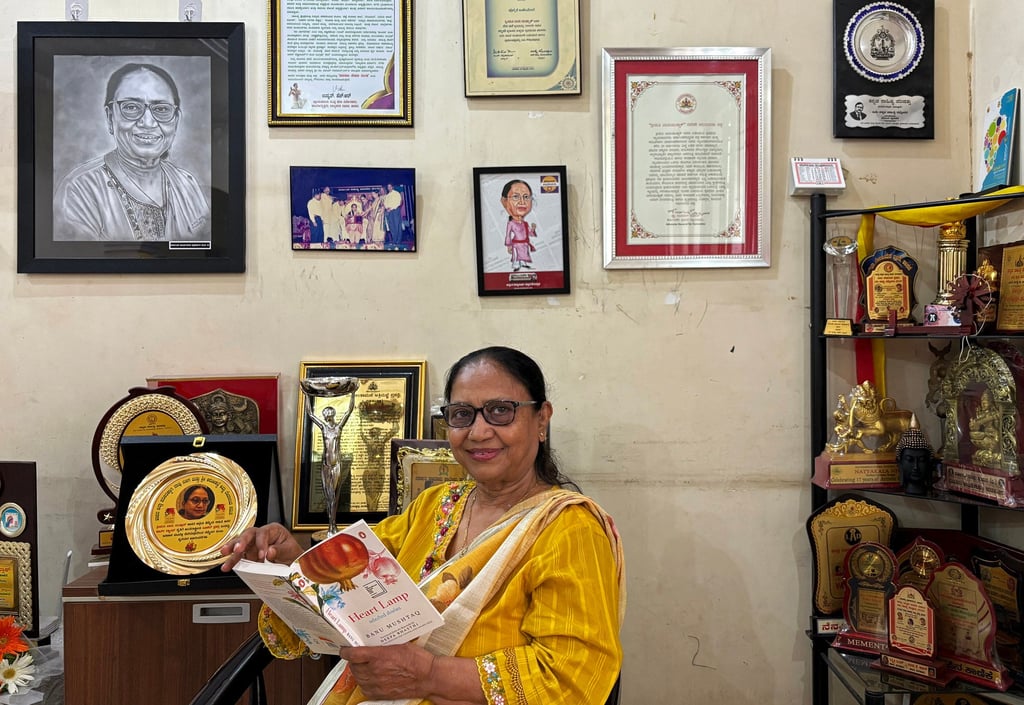For decades, writer Banu Mushtaq’s literary circle was confined to the southern Indian state of Karnataka, where she also worked as an activist and lawyer.
“Winning the prize is a deeply humbling experience, not just as a personal milestone for me or to the translator [Deepa Bhasthi], but also as a recognition of voices that have too often remained on the margins,” Mushtaq tells the Post.
The award also landed her in the history books: it was the first time the Booker Prize had been awarded to an author writing in the Kannada language, and the first for a collection of short stories.
“For a regional-language author to receive this kind of global visibility signals a powerful shift. It tells us that the world is ready to hear stories rooted in regional identities, histories and experiences,” Mushtaq says.

But telling stories about marginalised communities has not been easy.








